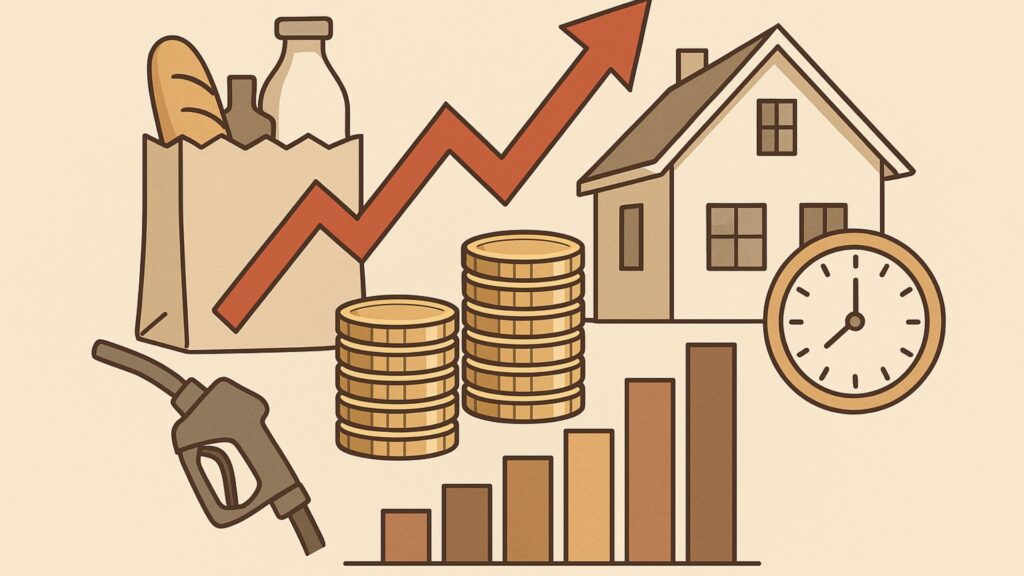
Introduction
In May 2025, inflation in the Czech Republic rose to 2.4% year-on-year, marking a clear acceleration compared to 1.8% in April. This increase reflects growing pressures in core consumer sectors, particularly food, housing, and services, despite continued declines in energy prices. The development may impact economic outlooks and consumer sentiment going into the second half of the year.

Inflation climbs to 2.4% year-on-year
The consumer price index showed a 2.4% increase in May compared to the same month last year. On a month-over-month basis, prices rose by 0.5%, a notable jump driven mainly by essential goods. While energy prices have been falling steadily, they have not been enough to offset the inflationary effects from other categories.
Key contributors: food and housing
The strongest price increases were observed in:
- Food and non-alcoholic beverages: +5.4%
- Eggs: +44%
- Fruit: +15%
- Dairy products: +6.8%
- Meat: +3.6%
- Chocolate and sweets: +23%
- Housing and utilities:
- Rent: +5.7%
- Maintenance and repairs: +3.5%
- Water, waste management, and heating: +3–4%
Service-based inflation also rose, with hospitality and lodging up by 7.7%, and restaurant prices rising by 4.6%.
Energy prices decline, but can’t counterbalance
Some categories saw deflationary trends, especially in the energy sector:
- Fuels: −13.5%
- Electricity: −4.6%
- Natural gas: −8.4%
These drops helped limit the overall index, but the downward energy trend was not strong enough to neutralize the broader increase in living costs, especially for food and housing.
European comparison: Czech ranking worsens
In the European context, the Czech Republic dropped to 24th place out of 41 countries for inflation levels in May, down from 33rd in April. Although the average annual inflation in 2024 was relatively low at 2.4%, this latest uptick signals the beginning of a possible upward trend.
Compared to other EU economies, Czech inflation is now growing at a faster pace, driven by domestic consumption and service-sector pressure.
Outlook for the coming months
Analysts forecast a continued increase in inflation into June 2025, potentially reaching 3%, largely due to base effects and sustained pressure from food, travel, and seasonal services. This trend may prompt policy adjustments or renewed debates on monetary stability.
Conclusion
In May 2025, the Czech Republic experienced a noticeable surge in inflation, reaching 2.4% and fueled mainly by food prices, housing costs, and services. While energy prices offered some relief, they weren’t enough to balance the impact of rising consumer expenses. The country’s inflation ranking in Europe has worsened, and with expectations of further increases in the coming months, this trend could influence both economic policy and household spending behavior.
AI – generated image.





